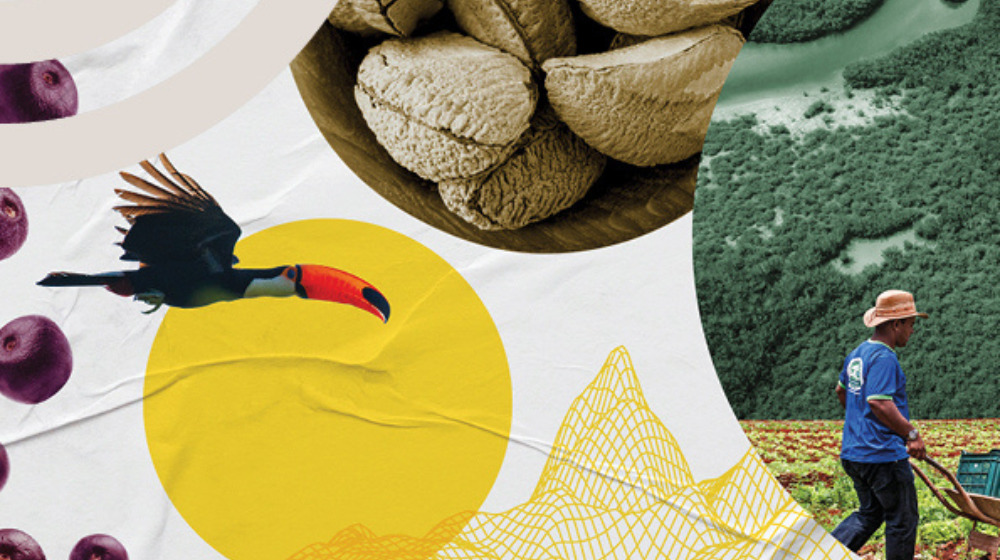Investments in the bioeconomy may decrease poverty rates by 50% in Pará and 21.5% in Maranhão

Employment and income generation policies are essential to curb the expansion of existing illegal operations in the Amazon – such as gold mining – which enlist the vulnerable population in their activities. Without such policies, enforcement will be insufficient.
Our new study How can the bioeconomy fight poverty in the Amazon?, to be unveiled by the Instituto Escolhas on March 15th, shows how investment in two activities – horticulture and forest recovery – can be a viable strategy to combat poverty, while encouraging an economic transition towards bioeconomy chains at the expense of others that would destroy the forest.
Using as an example the states of Pará and Maranhão, also covered in recent Instituto Escolhas publications, the study estimates that the recovery of 5.9 million hectares of forests in Pará has the potential to generate R$13.6 billion in revenue, create 1 million direct jobs and reduce the poverty index in the state by 50%. Meanwhile, in Maranhão, the recovery of 1.9 million hectares of forest could generate R$4.6 billion in revenue, create 350,000 direct jobs and reduce the state’s poverty rate by 21.5%.
On the other hand, increasing vegetable production to 170,000 tonnes in Pará has the potential to generate BRL 682 million in income, create 86,000 direct jobs and reduce the poverty index in the state by 6%. If Maranhão increases its production to 187,000 tonnes, it could generate BRL 600 million in income, create 134,000 direct jobs and reduce the poverty index in the state by 9%.
“Regarding forest recovery investments, an example that might inspire Brazil is that of the Civilian Conservation Corps (CCC), created in the United States in the 1930s. The United States was undergoing the Great Depression at that time and the Corps employed thousands of young people in the construction of forest conservation infrastructure. The Corps also planted native vegetation, controlled forest fires, and controlled erosion and floods. It is no coincidence that President Joe Biden recently announced that he plans to resume the program, renamed Civilian Climate Corps, employing young people in conservation and recovery projects on public lands,” says Sergio Leitão, executive director of Instituto Escolhas. “This could be replicated through the creation of employment and income generation initiatives for the vulnerable population of the Amazon”.
Horticulture, in the other hand, has characteristics that indicate great potential for the productive inclusion of the labour force. The cultivation of vegetables and legumes can be done on small properties, with low investment, and being highly eligible for credit policies such as the National Programme for Strengthening Family Agriculture (Pronaf). “The creation of work fronts in horticulture could offer immediate opportunities for employment and income generation for the vulnerable population in poverty and extreme poverty in the Amazon”, according to Leitão.
At this point, it is worth recalling data from a previous study by Instituto Escolhas, which showed the effect of reducing poverty and extreme poverty indexes on deforestation rates. “The study Can the fight against poverty contribute to stop deforestation in Brazil? attests that, yes, it is essential to combine policies to combat deforestation with policies to address poverty and generate income if we want to stop deforestation in Brazil. Investing in the bioeconomy is the best way to not only keep the forest alive but also to enable environmental recovery while providing an escape route out for the socially vulnerable people of the Amazon”, says Sergio.
Read the study here.
Related
Brazil attended COP-6 in Minamata without presenting an action plan to address mercury usage in mining
Study shows 2,274% increase in herbicide use for soybean production
Technical assistance is prevalent in legal regulations and public policies; however, a study indicates that it does not adequately reach rural producers
Study reveals Brazil applies pesticides and fertilizers inefficiently and unsustainably in soybean farming

 Texto
Texto